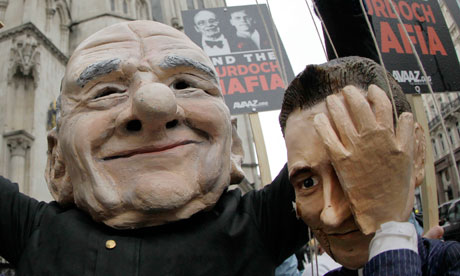
A boy is given an oral polio vaccine.
A new report by two Delhi pediatricians suggests that the sharp rise in childhood paralysis in India is due to the increased usage of the oral polio vaccine. Dr. Neetu Vashisht and Dr. Jacob Puliyel of St. Stephens Hospital created the report after analyzing data from India’s 10-year-old National Polio Surveillance Project, which is available online. Their findings, which were published in the Indian Journal of medical Ethics, revealed that rates of non-polio acute flaccid paralysis (NPAFP) have increased 1200% since the oral polio vaccine was introduced to India a decade ago. The oral polio vaccine contains a live polio virus and has been linked to polio-like paralysis.
Elliott Freeman, Digital Journal
Related Links:
* Polio programme: let us declare victory and move on
(FULL TEXT)
Neetu Vashisht & Jacob Puliyel, Indian Journal of Medical Ethics
* The only way to eradicate paralytic poliomyelitis is to stop vaccinating
Dr Viera Scheibner (PhD), British Medical Journal
* Polio Vaccines Now The #1 Cause of Polio Paralysis
Sayer Ji, Activist Post
* WHO scandal: India announces polio vaccines are paralysing children
The Telegraph, Calcutta
2. Britain on the breadline as thousands face food poverty

Two new food banks are opening in Britain every week as people struggle to make ends meet. The impact of Britain’s economic downturn is forcing tens of thousands of ordinary families to queue up for food handouts. The news that two new food banks are opening in Britain every week as people struggle to make ends meet should make each and every one of us pause and think. In one of the world’s wealthiest nations, it proves that more and more people are asking for help to feed themselves and their children, and that’s shocking. But is the exponential growth of food banks evidence of a new type of food poverty? Proof that the poorest in our country are going hungry? The Trussell Trust, a Christian charity which runs the vast majority of the food banks, thinks so. They now help more than 120,000 people by giving them food, and a more than a third of them are children. They believe half a million people could need their assistance in three year s as the recession and the benefit changes hit, and hunger bites.
Penny Marshall, Chill4Us carers
Related Links:
* More children go to school hungry, warn teachers
Richard Garner, The Independent
3. Government persecution of disabled is waste of time and taxpayers' money


The programme of reassessing incapacity benefits has been condemned as degrading and humiliating by a woman in North Devon. The woman, who suffers from the degenerative Parkinson's disease, is in her late thirties and lives on the outskirts of Barnstaple. She takes daily medication and says she is unable to hold a pen. She says she is too frightened of the Department of Work and Pensions to give her real name and asked to be called Angela. She said: "It's humiliating and degrading. I have a degenerative illness and it has no cure, so I'm not going to get better. It is hard enough to face up to that." Angela did not condone benefit fraud, but said official figures showed that only 0.5 per cent of all benefit fraud related to incapacity benefit. She said: "The Government is just picking on a minority." She said the assessments, carried out by private company Atos Healthcare under a £100 million contract, were a waste of taxpayers' money.
this is North Devon
4. Join Occupy London for May Day - a day for all

On 1 May, people around the world will strike - they will demand their right to decent working conditions, secure employment and pensions. For this day, Occupy London supporters are planning an inspiring day in London, in preparation for events coming up in the month ahead, dubbed 'Occupy May' which marks one year since the indignados reclaimed their squares in Spain and Greece, and seven months since this extraordinary movement went global, but it is just the beginning. Occupy London said in a statement. This day is for all people. It isn't just for workers lucky enough to have unions to represent them. It is for parents and carers whose work is often not seen as productive, for people forced into workfare schemes, for students whose only way to employment is unpaid internships, for those who can't get their foot in the door of the workplace because of their nationality, gender, disabilities. It is for all of us and our right to earn a living for a decent life. It is time for these inequalities to stop. This May Day, strike with your union if you have one. Call in sick, take a holiday, don't show up. Join actions and marches in your city, bring your community together and talk about the issues in your area, make some noise. Remember, you are not alone. Together we can make a change.
Information Release, Occupy London
5. Rupert Murdoch’s influence: the wink stops here

Rupert Murdoch’s critics, watching him testify, were no doubt thinking: “The devious old bastard. He forgets so selectively and he dissembles so artfully.” And what were Murdoch’s many admirers thinking? Almost certainly the same thing. You have to assume that his admirers don’t put their faith or money on the Rupert in plain view. Not only is he old (and age was an issue here, not least because it entitled him to gentler treatment), but at times he appeared genuinely muddled. If you are an investor in News Corp, as many are (and are usually the richer for it), then you need to believe that inside that slow, Leonid Brezhnev character there lurks a nimble Mikhail Gorbachev who brims with cunning plans and money-making wheezes. So Murdoch doesn’t need to equivocate (although he does) because he is a kind of living equivocation in his own right, capable of sending several messages at once without saying very much at all. A nd it’s likely that most of us, of whatever persuasion, play our parts in this, simply imagining that every curt declaration he makes is accompanied by an invisible wink. So it’s really: “I don’t know many politicians “; “I never asked Blair for anything “; “I never let my commercial interests … enter into any consideration at elections .” Of course this makes difficulties for lawyers, historians and reporters, because an invisible, equivocal wink will never, as it were, stand up in court. For the rest of us, however, it has the reassuring if paradoxical effect that we all hear pretty well what we expect. Murdoch is a monster and Murdoch is a genius, all at once.
Brian Cathcart, Inforrm's Blog
6. Three-strikes letters for British filesharers won't be sent out until 2014

The latest timetable from the Department for Culture, Media and Sport reveals that warning letters sent to filesharers won't begin to be sent out until 2014. The Digital Economy Act, which was passed in 2010 in the wash-up at the end of parliament, originally set out a system of graduated response (known as " three strikes") to persistent filesharers. Anyone accused of sharing copyrighted material would be sent a letter, then another letter, and then finally "technical measures" could be taken against them, which could include cutting their connection off entirely. The real question, however, is whether the letters will actually ever arrive at all. Issues around exactly how the system would operate, arguments over who pays for it, blank spaces where the details of the "technical measures" should be, along with a lack of political will among the coalition to prop up Labour legislation could easily sink the project entirely. Pl ace your bets in the comments. Will we ever see "three strikes" arrive in Britain in reality?
Duncan Geere, Wired
Related Links:
* UN: Britain’s Repugnant Digital Economy Act Violates Human Rights
Tom Jowitt, eWEEK





















